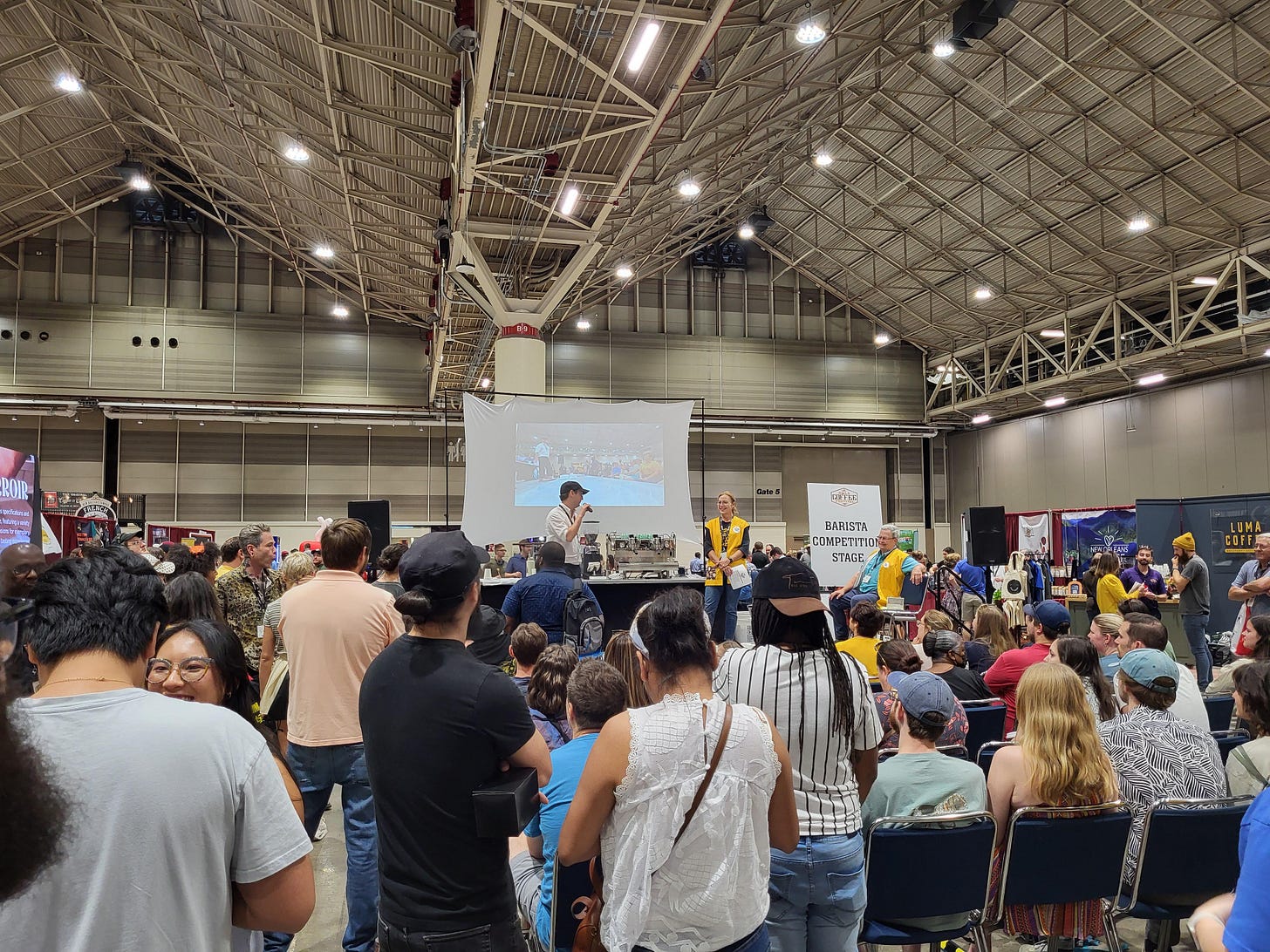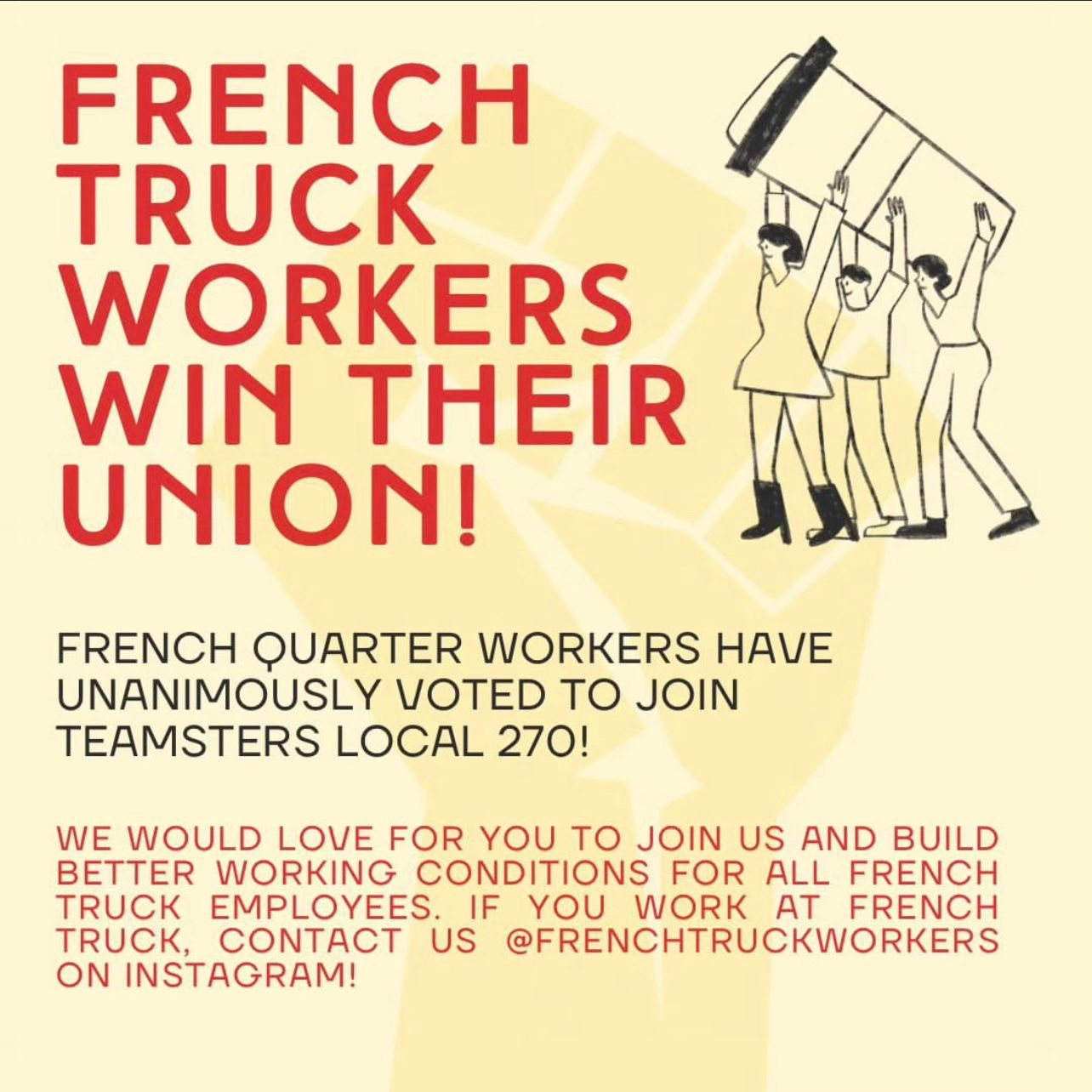Double shots, single-origins, the rise of espresso exploitation
Notes of a flourishing community, followed by bitter industrial consumerism
Some of you may know I’m a big fan of coffee. Not only diner coffee but specialty coffee. I’m talking like the $7 coffees with pretty latte art served in modern, hip cafes. Am I a coffee snob? Yeah, sure. I admit it. But I picked up this love from hard-working people who actually rely on this high level of coffee service to make a living (thanks to my Bearcat homies), which is the inflection point of today’s post.
Last Sunday, I didn’t make my weekly post in time. It was a decision I made mixed with intention and laziness. I was going through a busy weekend and just didn’t have the time to write. Which is okay, and something I touch on in my very first post. This week, I’m also going through a busy weekend and will be spending my spare time writing the post for 10/29, the day after my wedding. I hope to write about that soon too!
Today, I have something special. I wrote a cover piece for the NOLA Coffee Festival that happened in mid-September, just this past month. It was slated to get printed on ANTIGRAVITY, but after a sudden passing in the artist community, they let me know that it wouldn’t make it. So, I’m giving it to you, reader, to enjoy. I hope you can take something away from it, learning a little bit about the complexities of any industry that’s just as addictive as coffee.
NOLA Coffee Festival tamps down in the South
by Van Le
When I heard that the NOLA Coffee Festival was opening its doors for its first year, I was immediately interested. I’m an avid “third-wave” coffee drinker, part of a generation of coffee enthusiasts who highly regard quality, origin, and flavor. This movement has been brewing in New Orleans for several years, with now over a handful of microroasters that supply beans to charming espresso cafes.
Co-founders Kevin Richards and Jim Currie, two marketing veterans, founded the event to recognize roasting giants, like Folgers and PJs, that’s been a part of New Orleans’ history as a major coffee port, as well as representing the hundreds of micro-roasters in Louisiana and neighboring Gulf South states. As marketers, they found a natural gap in the tourism sector for a coffee experience that blends a similar fervor for culinary cuisine associated with New Orleans. In September, roasters, suppliers, and coffee shops congregated at the Ernest N. Morial Convention Center for what was essentially a trade show that they opened to the public.
The festival featured over 40 companies and small businesses, from single-source coffee farms to home appliance suppliers for roasting and brewing. The model emulates what you’d find in coffee “festivals” held in New York and San Francisco, which feel more like tech conventions of companies promoting their products, services, and partnerships. For $15 admission, consumers had access to an open-floor exhibit hall, a barista competition, and a speaker lineup presenting on all things coffee. Upstairs, four classrooms for baristas, roasters, owners, and general audiences were staged for enthusiasts with any experience to listen to talks, including topics about brewing techniques, tasting philosophy, and coffee history, to name a few. “The educational focus is something that has really set the NOLA Coffee Fest apart,” said Chris Kornman, Director of Education at The Crown, Royal Coffee’s lab and tasting room.
When I attended a brewing fundamentals seminar in the barista classroom, the speaker asked for a show of hands of how many baristas were there - no hands raised. Instead, a room full of everyday folks went ahead to learn the processes for extracting good coffee. I couldn’t help but think how the festival can convert a market of ordinary people to a culture that relies on a self-serving cycle of consumerism.
Oversold, Overworked

Big coffee hardware brands, like premium La Marzocco espresso machines and Comandante bean grinders, featured high-dollar equipment that was absurdly cost-prohibitive for any novice coffee homebrewer (the grinders cost upwards of $200). These displays attracted interested crowds, sending them the message that, in order to make good coffee, you need top-shelf stuff. I admit I’ve been caught in the hype, having amassed an assortment of coffee-related gadgets that’s become a regular part of my morning cup. I see endless social media content on how you’re preparing espresso wrong if you don’t use a glorified whisk, but that’s how the industry encourages consumers to conflate buying a product with being an expert.
That type of consumer privilege hurts the front-line of growers and minimum wage service workers, glamorizing coffee making and insinuating marketing into a pseudo-expert opinion that buyers push onto the baristas when making their order—asking questions about what bean they use, the origin, and preparation. The classes emphasized how critical the brewer is in bringing out the true flavor of coffee, but it’s no secret that wages hardly reflect that value. In response to the rising pressure from consumers and midstream players to be both an expert and artist, employees at a local Starbucks and French Truck have unionized to fight for a bigger share on the grounds of inadequate wages and limited benefits, with a second New Orleans Starbucks branch poised to unionize. French Truck had a display up at the festival, but no workers were present.
Third Wave Impact

The NOLA Coffee Festival proliferates a pseudo-expert consumer mentality that doesn't pay respect to the baristas who have spent thousands of hours training and serving coffee. Baristas have to double as connoisseurs of their own coffee in order to appease pretentious buyers looking for good coffee recommendations. Shops rely on baristas to be skillfully adept at crafting and tasting coffee, like learning the flavor wheel, a cardinal method for describing how a coffee tastes. On top of attending classes and competitions at the festival, booth workers served hundreds of lattes and cappuccinos to customers throughout the weekend.
I admittedly also had fun with my friends, getting over-caffeinated and talking with other espresso heads from South Carolina, California, and Arkansas, all here to celebrate coffee. But there was little fanfare for the baristas that made the event possible, stuck behind counters to whip up the beverages we desperately crave so much. Consumers weren’t given a glimpse into the current labor issues, as evidenced by French Truck workers’ unionizing efforts just four days later. There was only one seminar on the Black history of coffee and none on the imperial impacts of international trade. So much real-world context is missing from a supposedly educational festival that it percolates the underlying issues, the invisible hands that labor for this universally enjoyable brew, and only serves up the sweet stuff. The NOLA Coffee Festival missed an opportunity to stir up conversation around these topics, perpetuating consumer privilege that fails to take into account the hardships of the people working beyond the counter.
Please comment and let me know what you think about coffee or would like to suggest a topic you want to hear more about.
This week’s jams (for paid subscribers)
Continuing the hip-hop trend, I’m sharing a playlist that was inspired by the documentary, All the Streets Are Silent: The Convergence of Hip Hop and Skateboarding (1987-1997), created by Jeremy Elkin who had his start in the film business making skate videos. I’ve been kinda obsessed with skate culture lately and the butterflies I get watching skaters cheering each other on, challenging themselves to nail a trick, or promoting the age-old practice for public health. The documentary is an account of the intersection of white and Black culture in New York and the music scene that developed to create legendary rappers and DJs. If that’s interesting to you, I highly recommend watching the film.




